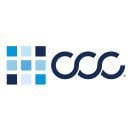Chicago has long been a hub for the tech industry. From the early days of Motorola, Bell Labs and Western Electric, the Windy City has helped drive transformations in tech — even if today’s tech pillars aren’t always as well known as their counterparts in the Valley.
We talked with five of Chicago’s tech powerhouses, those companies that help draw in talent and lead innovation, about the changes they’ve seen since their founding, along with the challenges they’ve faced.

Cars.com got its start in Chicago in 1998 and has since expanded to five offices around the country to employ 1,300 people. The company is getting ready to move its headquarters for the first time in its nearly two-decade history, upgrading its working spaces to better serve employees.
“Even though we’re one of the largest tech companies in Chicago, our goal is to ensure there’s a feeling of entrepreneurship and ownership inside these walls,” said CTO Ed McLaughlin. “ For example, we have moved toward pair programming and full stack development with the intent of making our developers software craftspeople. This enables them to take on any language quickly and work on new and different technologies.”
Since founding, Cars.com has seen plenty of change in the industry, with Chicago rising as a top tech hub.
“There is a strong mix of startups and established companies,” McLaughlin said. “There are more startups than ever before, but the established tech companies are innovating and growing at an incredibly fast pace. For professionals in the field, this provides ample career opportunities and proves that Chicago has grown into an important tech hub in the U.S.”

Put simply, Morningstar helped pave the way for Chicago's tech success. The fintech giant got its start in 1984, building off of Chicago’s position as a center of financial talent. The company helped get technologists into the fintech scene and attracted initial tech talent to the city as the industry blossomed.
“One of our core values is entrepreneurial spirit, and you can see it in the diverse technologies and products we leverage,” said chief software officer Rick Bowman. “Software and quality engineers, designers, and product managers can all come to Morningstar to put their stamp on the future of how we provide investors around the world with independent financial research.”
But the company’s age doesn’t mean they aren’t using the latest tech. Morningstar ensures that it always provides the best insights to its clients by taking advantage of fresh programming advances.
“We’ve seen the development of agile techniques grow amongst Chicago tech players and it is a strategy we have adopted across our entire product organization, allowing our teams to work together and move fast,” Bowman said. “We recently expanded our Chicago headquarters office space, designed for the working needs of Morningstar’s engineers, user experience designers and product management teams. Features include mobile workstations for agile software development, integrated audio/visual elements throughout the space, and dedicated stand-up and casual meeting areas.”

Food delivery wasn’t invented with the internet, but the web did bring with it the expectation that anything could be ordered online. Grubhub made that a reality for food delivery, and expanded the options from cardboard-like pizza and Chinese food to almost any meal imaginable.
The company was founded in 2004, making a splash before Chicago’s tech scene really took off.
“Chicago has come a long way,” said technical evangelist Maria Selvaggio. “The biggest change is the number of startups and successful companies that the city houses. Each successful startup makes the case for yet another company to join the tech scene, in addition to the incubators and accelerators that allow for someone to start a company and achieve success.”
However, some challenges Grubhub noticed in the Chicago tech scene have persisted. For example, it can still be hard to attract talent from outside the city.
“Technologists outside Chicago don’t have much insight and awareness of the tech scene in the city, and so they don’t think about finding work here”, Selvaggio said. “To face these challenges, Grubhub places an emphasis on highlighting our benefits, such as our unlimited paid time off, Learning Fridays, free food and cutting-edge technologies. We are also focusing our efforts on informing outside communities about our challenges, products and work through attending and speaking at conferences and technology-related blog posts.”

Another company that helped pave the way for Chicago’s rise in the tech industry is CCC Information Services. The company, which provides software and insights to the automotive claims and parts markets, was founded in 1980. CCC has capitalized on the rise of massive data sets and the connected car to become a leader in telematics.
“Technology has enabled rapid innovation creating new products, markets and even industries, sometimes in months versus years,” said Winston Casey, director of talent acquisition.
That pace of change is often a struggle for established companies, but at CCC, the team is taking advantage of that innovation to tackle problems with fresh solutions.
“As the Chicago (and the world) economy shifts and is increasingly technology-driven, innovation is happening at a record pace; the creation of new opportunities because of innovation is exciting, but also results in intense competition for talented employees,” Casey said. “CCC employees do creative, rewarding work and have fulfilling careers. We’ve been able to attract and keep talent with our welcoming culture, our innovative technology and a really smart team.”

One of Chicago’s newer players on the tech circuit, Trunk Club has grown to be shining example of what the city can accomplish. Founded in 2009, the company had to fight hard to establish its position.
“The tech community in Chicago is dominated by a few very big players when it comes to salaries and talent in key areas like Ruby development or data science, making it difficult to find the talent to build a startup here in Chicago,” said Justin Hughes, VP of product development and design. “It forced us to get really creative about how we introduced folks to what we were doing here at Trunk Club.”
Obviously, the company was able to break through those barriers, growing its business to include physical locations for in-person fittings and an eventual acquisition by Nordstrom. But it took some work to build up the team of experts it has now.
“We built a strong apprenticeship program, a campus recruiting program, and we also have improved our onboarding of remote employees,” Hughes said. “Things have balanced out considerably with greater diversity of programming languages at the big shops and also here at Trunk Club, especially thanks to incubators like 1871, VC firms, and successful IPOs and acquisitions.
“Interestingly, for the first time in awhile, I've also had applicants to these key positions come out of the west coast. Folks are applying from places in San Francisco, saying that things have become too much of a rat race out there and wanting to move closer to family back here in the midwest.”
Image via featured companies. Morningstar photo from Steve Hall©Hedrich Blessing
What are problems facing today's tech pillars? Let us know with a tip or a tweet @BuiltInChicago









